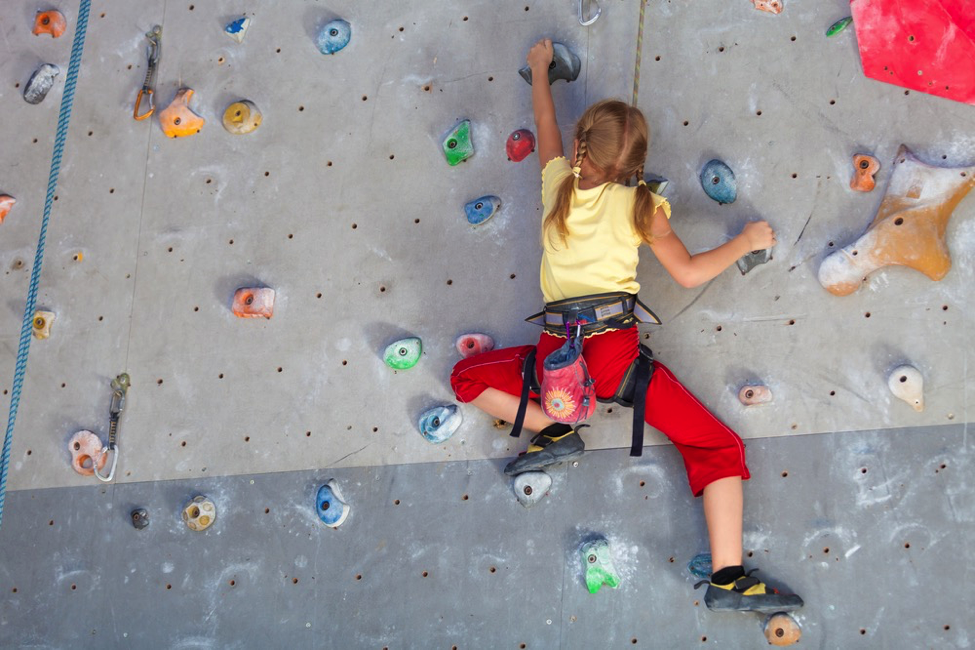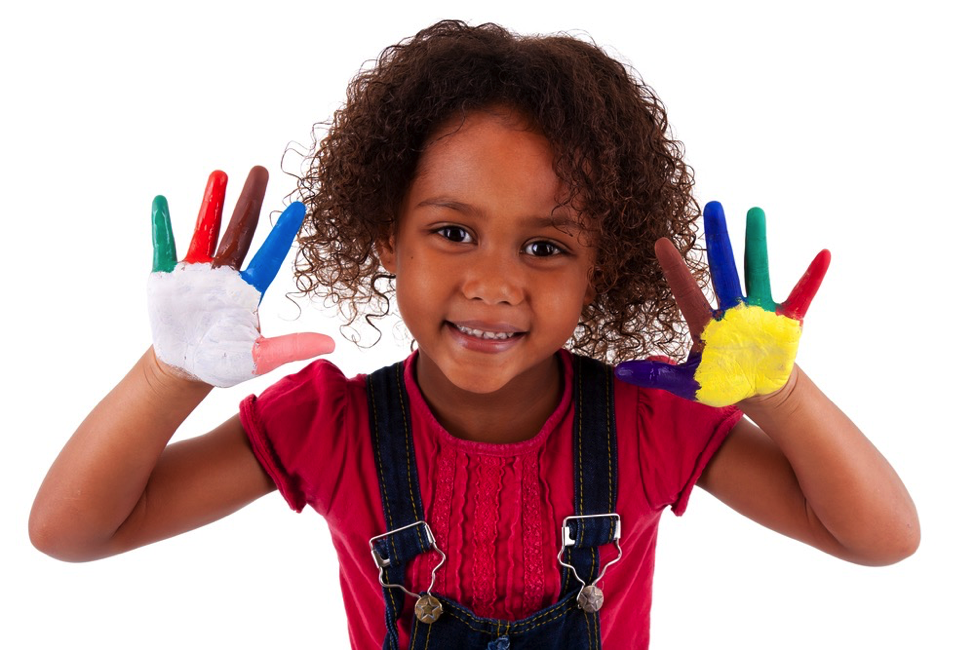How To Raise Happy, Well-Adjusted Kids


Everywhere you turn today, you’ll find advice and recommendations on when to start your kids in school, where they should go, what instrument they should play, and what extra-curricular activities will get them into better colleges or universities. All so they can achieve more and be well off in adulthood.
But are good grades and a decent paycheck the only measures of success in raising children to be well-adjusted adults? What about their emotional quotient? Teaching them kindness and compassion? Teaching them to be courteous and respectful?
Do those things get compromised in our mission to raise the next kid genius or 20-something millionaire?
Below are some successful, tried-and-true tips I’m sharing based on my over-25 years as a therapist and raising my own children. These tips tell you how to dramatically increase your chances of raising not only intelligent, motivated, and happy children but also compassionate, grateful, and kind ones.
Before we dive in, I want to give one important disclaimer: no one knows you or your child better than you. This means, despite all the parenting advice out there, there is always more than one single, best way to go about it. A little bit of sound intuition can go a long way!
Children Are A Product Of Their Environment and Their Genetics
I have three children who are similar and different in so many ways. Some of this is simply based on genetics. Genetically, no two people will ever be exactly the same – including “identical” twins who may look alike but can have different personalities, likes, dislikes, needs, wants, and desires. This certainly includes the areas of academic intelligence (IQ) and emotional intelligence (EQ). As parents, we need to accept this fact and treat each of our children on their own terms.
In terms of environment, there is much more that we can do to help our children grow and develop. The research is clear. Relaxed parents will raise relaxed kids and anxious parents will raise anxious kids. Ever noticed how kids, especially toddlers repeat everything they hear, or how they mimic everything you do? They pick up on everything— words, actions, and energy included! They learn how to be happy and sad and grateful and generous and angry and everything else in the book from you and other significant people in their life.
Your Child Needs Affection
There is nothing quite so powerful for most children as feeling attached to someone who is physically and emotionally affectionate. It turns out that we are neurologically wired for human connection with others. We literally and figuratively need to develop attachments to others. This need is centered in the limbic area of the brain.
Some children’s life experiences serve to block out this need. Children brought up in healthier environments learn to self-identify this need and seek out others who feel similarly.
Research supports this idea. A study in the American Journal of Public Health, published in 2005, reports that affectionate human touch clearly has the power to alleviate stress symptoms — emotional, behavioral, cognitive, and physical.
In order for us to have this connection with others we need to feel that it is safe, warm, accepting, and nurturing. When we connect with our children in this way, our children grow to learn they are loved and their young world is a safe place.
As adults, we know that our child’s future experiences will not always be safe. But if we help them to develop a strong inner core, they will learn more clearly who they want and need to be around in their life, and who to avoid whenever possible. You are providing your child with a wonderful gift as their learn this vital life skill.
Tip: Learn from your child about what they like and don’t like as it relates to affection.
Good News – You Don’t Have To Be Perfect To Raise Great Kids!
None of us is perfect. Not as parents nor as children. We all have and are going to make mistakes. You are not required to be a perfect parent in order to raise happy and well-adjusted children.
Actually, I would argue that showing your imperfection is better. Our children need to see us make mistakes because then they realize it’s ok for them to not feel that they have to be perfect. This, alone, can be a tremendous stress reliever for your child.
Admit your mistakes to yourself and then apologize to your child for your mistake. Drop your need for you to be perfect and, by extension, you will give them the message that they don’t have to be perfect. You’ll be pleasantly surprised at how this level of humility can reduce the stress in your parent-child relationship.
Embrace your own humanity, commit to doing better, and then reframe the inevitable mistakes we all make into a learning opportunity and you’re back on track!
Model What You Want To See In Your Child
Let’s talk more about the learning opportunities that anger and other “negative” emotions bring to the table. Throughout life, whether we like it or not, our children will experience anger and disappointment and sadness. It’s important that just as we help them study for a test, we help them learn how to express their emotions in a healthy manner.
Stuffing any sort of feelings only leads to emotional explosions later on anyway. Whether you get upset with your child over something, or perhaps you and your partner have a heated argument, take my advice and don’t blow up and don’t hold it in. Talk it out with them and show, by example, how you can deal with negative emotions in a positive way.
Your child’s ability to see how you resolve conflict with others is a great way to model conflict resolution and problem-solving. Our kids learn so much from the examples we set for them.
Tip: Remember, you are the primary means by which your values of kindness, compassion, courage, friendship, companionship and all other vital important human values are transmitted to your child. Model those values. You will be giving your child a great gift.
Instill The Value of Serving Your Community
Contributing to your community isn’t only good for others, but it’s good for you and your family as well. It could be as simple as breaking out your checkbook or going online and making a donation. This is a wonderful opportunity for your child to see charity in action as you write a check to your local children’s hospital or for a disaster relief fund.
And, of course, hands-on community volunteering is also a splendid way to help your child get out of their own narrow world in order to help make life better. Perhaps they can join you at a local beach cleanup or help serve a meal at a homeless shelter.
The key is, if you want your child to adopt what you believe are worthwhile values, then they need to see you as a living example of those values.
A bonus for encouraging your child to volunteer in the community is this: they will more than likely meet other children and their families who share similar values to yours. New friends are often the result!
Give Praise When It’s Due
Cheering for our kids when good grades come home on reports cards is great. When we praise the effort that went into those grades, we are teaching them that working hard is important too. Even without knowing what the outcome will be, children need to know that their efforts are noticed and appreciated. A strong work ethic is an important piece for life-long success. Celebrating their effort will do even more to motivate them than just giving praise after a big win.
At the dinner table, engage in conversations that aren’t only about what they’re learning in class, but what they learn in between class too. “Did you help anyone succeed today? Did you make anyone smile today?” These are the things that are going to build their character. These questions are just as important as, “How did you do on the math test?”
Also, draw attention to the not-so-common acts of kindness too. Maybe they handled a conflict well or stuck up for the kid that’s being bullied? These are acts of self-control and compassion and should absolutely be acknowledged.
Promote Courage – Help Them Live Their True Authentic Self
Probably one of the most painful things I hear from people I work with, be they adults, teenagers, or children, is that some simply believe that they cannot live their true authentic selves. They feel that they have to put on a mask, of sorts, in order to please other people and to avoid feeling rejected.
In essence, they hide their true self. This is an extremely painful way for anyone to live. I can’t tell you how many hundreds of times people have shared the pain of isolation they live with because they believe they are not worthy or acceptable just the way they are.
Maybe your child wants to learn how to rock climb. You want to reward their courage to try this. Obviously you’re not going to throw them onto The Wall at El Capitan! But you can take her to your local rock wall studio so she can learn how to climb safely.
Tip: Ask yourself the following, what does my child want and need based on who they are? Am I trying to get them to fit who I want them to be? It takes courage to ask this question, but there are big advantages!
When you tune into who they are and learn to accept everything you like about them – and things you may not like or agree with as well – this will help your child to be much happier. Remember, they are not “mini-me’s.” They are individuals who richly deserve our love, support, and respect.
Embrace Their Process More Than Outcomes
Amy Capetta, a regular contributor on www.Parents.com and Parents Magazine writes, “People with a fixed mindset are usually reluctant to take on challenges because they believe their achievements come from innate abilities.
Children with a growth mindset are usually more willing to face challenges with hard work because they believe in always learning new skills.”
Simply stated, praising the process, breeds hard workers and critical thinkers. Praising the outcome can sometimes infer they had no real control, it was just either meant to be or not.
The World Is Changing – Promote Their Resilience
Given the times we are living in, the need to develop a sense of resilience in our children and ourselves is greater than ever. Here is an article I recently wrote on the subject.
Have Some Fun!
This would seem to be a given, but sometimes in the hustle and bustle of life, we forget to actually carve out time to have some fun!
Whatever the activities, your children, young or old, will have these special memories for a lifetime!
Encourage Creativity
Play pretend, dress up, GI Joe’s, laugh and joke with your kids. Life can’t be all serious all the time. They need to learn how to cut loose and have a good time as much as they need to learn when it’s time to be serious. Encourage hobbies by taking your daughter to mommy and me ballet class or building model airplanes with your son (or maybe even take up Pokemon Go!)
Having a sense of creativity will encourage children to think outside the box when problem-solving later in life. This is a fabulously valuable life skill! And, as you can see and already know, creativity can be great fun!
Of course, as parents, we want our children to be good people too; however, the focus and pressure from society is too often more on the material than on the value of good character. It’s important to slow down and remember we are raising the next generation and if we don’t want our grandkids growing up in a cruel world, we must pass down more than just our motivation for monetary success, we must also pass down compassion and loyalty and caring. And some fun!
Instill A Sense of Gratitude
There are many factors that contribute to happy children and adults. Over the years, it has become very clear that a genuine feeling of pervasive gratitude is by far and away the single most important factor related to happiness.
And the research supports this. Studies show that those who express gratitude are more likely to be helpful, generous, compassionate, forgiving and overall happier. Asking kids to help their siblings, giving thanks throughout the day, having responsibilities around the house such as chores, and developing a sense of thankfulness for the lives they have is actually very beneficial for children.
A child who genuinely enjoys saying “Thank You” and is saying it from a place of really understanding the effort the other person put forth is a happier child.
I hope that this article has been helpful. If you have any questions or comments, I would enjoy hearing your thoughts. I invite you to contact if you would like to explore this topic as it relates to you and your family.






















21 Things Your Child Should Be Able to Do…And Should Do By The Age of 12 | Gary Brown
[…] feel more productive, more confident, become better team players in life, and ultimately much happier than their counterparts who aren’t as […]